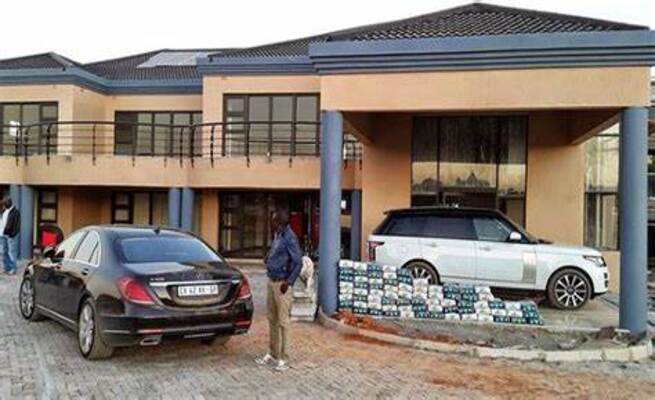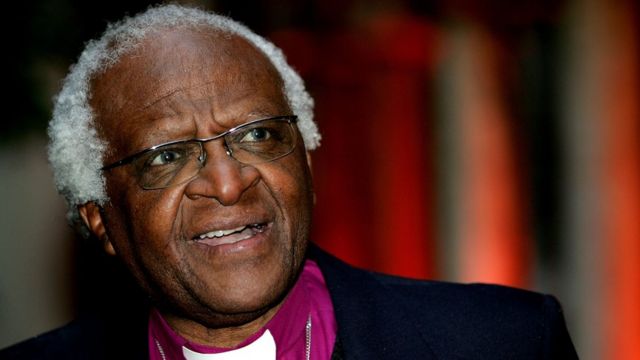Burundi’s new president, Evariste Ndayishimiye, took the oath of office at a colourful ceremony in the capital on Thursday, assuming the helm of a troubled nation after the sudden death of his predecessor.
Elected in May in a vote disputed by the opposition, Ndayishimiye was meant to take office in August, but his inauguration was brought forward after outgoing president Pierre Nkurunziza died from what authorities say was heart failure.
In his oath Ndayishimiye, 52, pledged to “devote all my force to defending the superior interests of the nation and ensure the national unity and cohesion of the Burundian people, peace and social justice.”
A 21-gun salute rang out in the capital Gitega after he signed the pledge before the seven members of the constitutional court before he inspected the guard and walked around a stadium packed with citizens dressed in identical outfits.
While guests were made to wash their hands upon entering the stadium, only a few dignitaries wore masks in the upper tiers and no distance was maintained between attendees.
Along with members of the military, police and judiciary, diplomats and representatives of international organisations were present, but no international heads of state attended.
Shortly before taking the oath of office, Ndayishimiye knelt surrounded by the leaders of the Catholic, Anglican, evangelical and Muslim faiths, who prayed for him.
“Understand that you are a son of God and as such must bring peace among Burundians, you know how much we need it,” said the Catholic archbishop of Gitega, Simon Ntamwana.
“Bring back to our country the refugees in the camps, bring back the intellectuals in exile so that they can take part in the development of our country, renew ties with the international community so they can help us develop,” he said.
Ntamwana had publically opposed Nkurunziza’s devastating third-term presidential bid in 2015, which sparked protests and a failed coup, with violence leaving at least 1,200 dead while some 400,000 fled the country.
‘A dark and sad legacy’
Nkurunziza, a devout evangelical who believed he was chosen by God to lead Burundi, leaves a “dark and sad legacy”, Carina Tertsakian of the Burundi Human Rights Initiative told AFP.
UN rights investigators have said the period since 2015 has been marked by likely crimes against humanity committed by state forces, citing extrajudicial executions, arbitrary arrests, disappearances, torture and sexual violence.
Nkurunziza, who ruled the East Africa nation for 15 often tumultuous years, died on June 8 of “heart failure” in a hospital in the eastern city of Karuzi, according to an official statement issued the following day.
But the 55-year-old took ill less than two weeks after his wife had been flown to a Nairobi hospital for treatment for coronavirus, according to a medical document seen by AFP, and speculation is rife he may have caught the virus.
A medical source told AFP he had suffered “respiratory distress” before dying.
Compared to its neighbours which imposed lockdowns and curfews — with the exception of equally sceptical Tanzania — Burundi has taken few measures to combat the COVID-19 virus.
The country last month expelled a team of World Health Organization (who) experts who were supporting the country’s response to the epidemic.
Hopes for change
Ndayishimiye, a former army general and Hutu rebel like his predecessor, had been handpicked by the powerful ruling CNDD-FDD party to run in a May 20 presidential election.
He won the vote with 68.7 percent, and an opposition bid to have the results overturned due to alleged fraud was rejected just days before Nkurunziza’s death.
Ndayishimiye is reputed to be more tolerant and open than his predecessor and is not a regime hardliner.
Observers say the death of Nkurunziza — who was expected to continue to play a significant role — might give him more independence.
However, he will still have to please the powerful group of generals at the core of the ruling party, who anointed him to succeed Nkurunziza.
After the news of Nkurunziza’s death, Ndayishimiye vowed to “continue the high-quality work that he has done for our country”.
The change in president also opens up the possibility of warmer ties with foreign donors, who cut Burundi off after the 2015 crisis.
A source in the French presidency said the country would work with its European partners and “extend a hand to the new Burundian president”.
“For the first time we will have a leader who is not just forging ahead regardless of the consequences, wrapped up in divine faith,” the source said.
The government has yet to announce a date for Nkurunziza’s funeral.
Credit: Africanews




